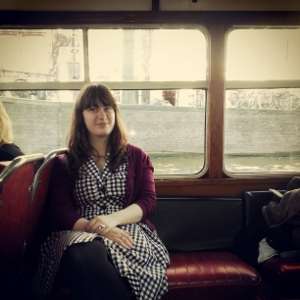The UK-Russian Cultural Year was launched with a concert by Vladimir Fedoseyev and the Tchaikovsky Symphony Orchestra of Moscow Radio, with violinist Vadim Repin, in a programme of Tchaikovsky’s Violin Concerto in D major and Shostakovich’s Symphony No.8 in C minor. Even though there was something of a disconnect between the audience and the grave music of the Symphony No.8 (I don't usually mind applause in between movements, but it seems strange in such a severe work), the orchestra was warmly received and ended the concert with no less than three encores.
Tchaikovsky’s Violin Concerto is notoriously difficult for the violinist. At the same time, it’s a beautiful and heart-warming concerto. Vadim Repin and the Tchaikovsky Symphony Orchestra’s performance had some noticeable strengths, but at the same time it did not fully convince. Repin is an exceptional violinist, who undoubtedly has the skill to pull off this concerto, yet his performance was a little shaky at times, with some imperfect intonation. His delivery of the cadenza, however, was stunning. The orchestral accompaniment was solid but lacked intensity, in particular the strings operated like a well-oiled machine, but little more. The third movement provided an engaging finale, concluding the performance on a high note.
Shostakovich’s Symphony No.8 is a great tragic symphony. It’s a long, emotionally harrowing and overpowering piece that is inescapably linked to life in times of war. Musically, it’s a piece that requires full commitment from the entire orchestra. The Tchaikovsky Symphony Orchestra got off to a great start, with cellos and basses solemnly introducing the lengthy first movement. Fedoseyev chose a fairly slow tempo, but this worked well in creating an ominous and dark mood, thereby setting the scene for the rest of the symphony.
It quickly became clear, however, that the Tchaikovsky Symphony Orchestra excels at the louder, faster parts of the music. In many of the quieter moments the sound was not always well-balanced. This is not to say that the individual musicians did not play well; flutes and oboes, in particular, were excellent and there were some beautiful solos from the cello and bassoon. The percussionists also made their presence felt. But as in the Tchaikovsky, the orchestra often seemed to lack the intensity that this work requires.
The Allegro non troppo third movement of the 8th Symphony is, I think, one of the finest Shostakovich wrote. It is here that the orchestra was at its best, the music delivered powerfully and even passionately, which made me regret that the rest of the programme had not been invested with such commitment. Despite the encores (Tchaikovsky's “Spanish Dance” from Swan Lake and “Nimrod” from Elgar's Enigma Variations) that were enthusiastically received by the audience, it was a disappointing evening.


